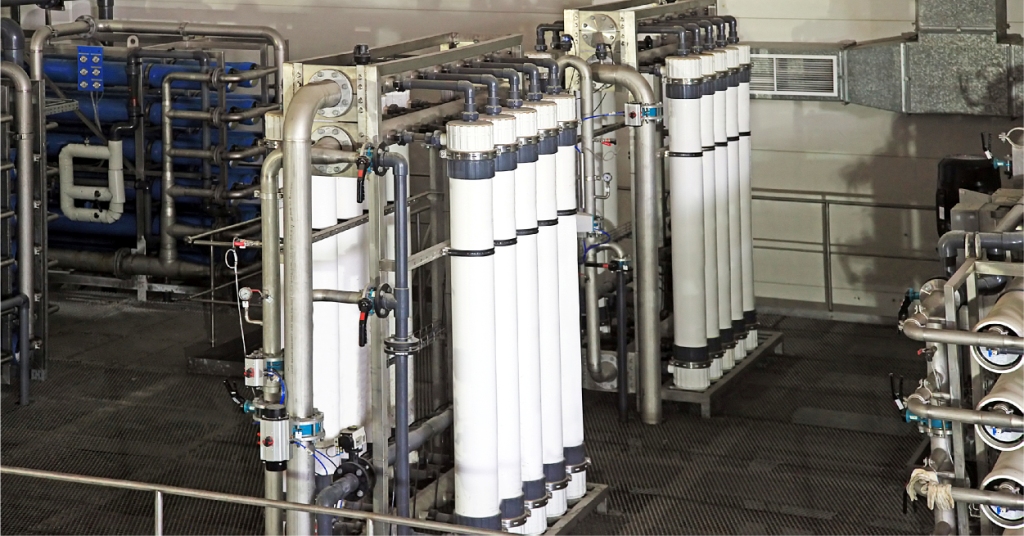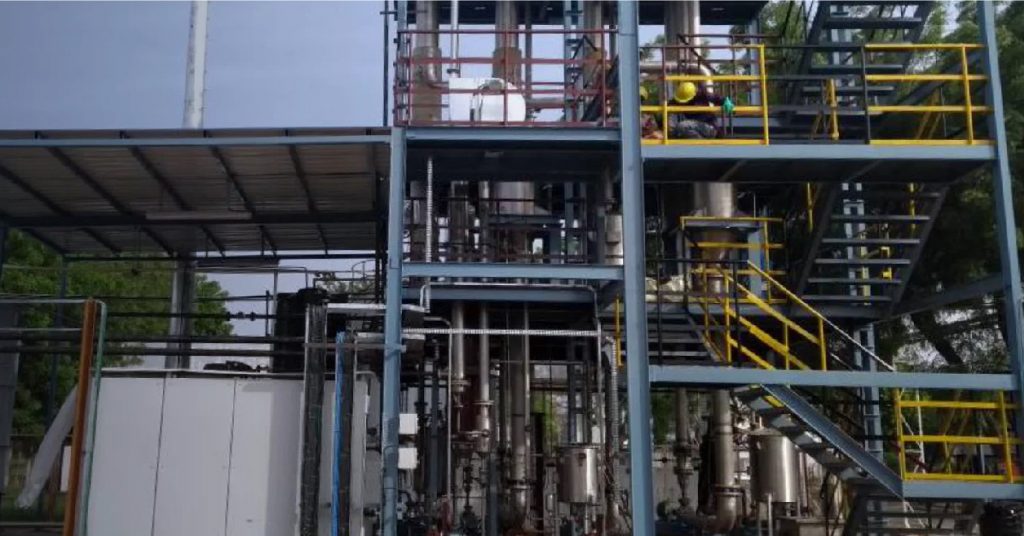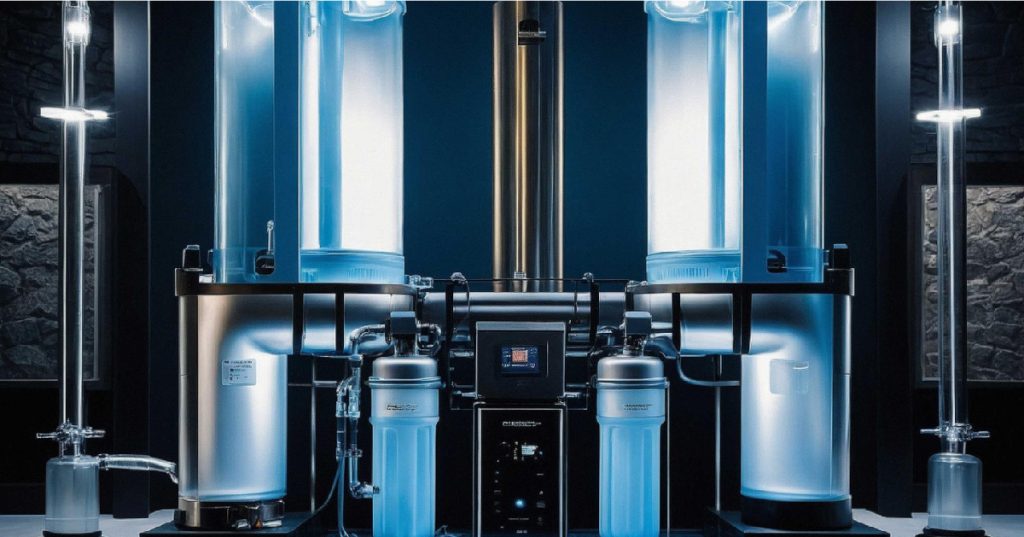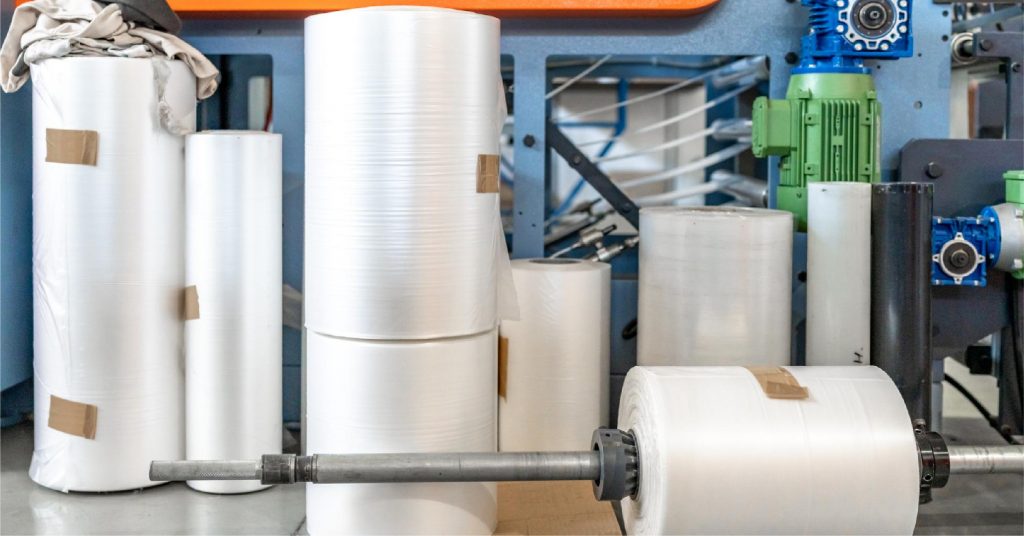Water is an essential resource for all aspects of life, yet access to clean and safe water remains challenging in many parts of the world. In South Africa, where water scarcity and contamination are pressing issues, innovative water treatment technologies are critical. Ultrafiltration has emerged as a key solution, offering an efficient and effective method for purifying water.
This blog will explore what ultrafiltration is, how ultrafiltration membranes work, and why this process is essential for water treatment in South Africa.
Table of Contents
ToggleWhat Is Ultrafiltration?
Ultrafiltration is a water treatment process that uses a semipermeable membrane to remove particles, bacteria, viruses, and other impurities from water. It operates through a physical filtration method, allowing water and smaller dissolved molecules to pass through while blocking larger contaminants.
The ultrafiltration process is widely used for various applications, including water production, wastewater treatment, and industrial water purification. It provides high-quality water without the need for harmful chemicals, making it an environmentally friendly option.
How Does Ultrafiltration Work?
At the heart of ultrafiltration is the ultrafiltration membrane, a critical component that determines the efficiency and effectiveness of the process.
1. The Ultrafiltration Membrane:
- This is a semipermeable material with pore sizes ranging from 0.01 to 0.1 microns.
- These tiny pores allow water molecules and dissolved salts to pass through while retaining suspended solids, microorganisms, and organic matter.
2. The Ultrafiltration Process:
- Water is pushed through the membrane under pressure.
- Contaminants are trapped on the surface or within the pores of the membrane, leaving clean water on the other side.
- The retained particles, known as retentate, are either disposed of or processed further depending on the application.
3. Efficiency and Reliability:
- Ultrafiltration membranes are highly effective at removing bacteria and viruses, achieving up to 99.99% purity.
- The process is reliable and consistent, requiring minimal intervention once operational.
Applications of Ultrafiltration in South Africa
South Africa faces significant water challenges, including water scarcity, pollution, and the need for sustainable solutions. Ultrafiltration offers versatile applications that address these challenges:
1. Drinking Water Production:
Ultrafiltration ensures safe and clean drinking water by removing harmful contaminants. It is particularly useful for treating surface water, groundwater, and brackish water in rural and urban areas.
2. Wastewater Treatment:
In wastewater treatment plants, ultrafiltration is used to purify effluent water for safe discharge or reuse. It plays a critical role in reducing environmental pollution and conserving water.
3. Industrial Water Treatment:
Industries require high-quality water for processes such as cooling, boiler feed, and manufacturing. Ultrafiltration provides a cost-effective solution for treating and reusing water in industrial operations.
4. Desalination Pretreatment:
Ultrafiltration is often used as a pretreatment step in desalination plants, protecting reverse osmosis membranes from fouling and improving overall efficiency.
Benefits of Ultrafiltration
Ultrafiltration offers several advantages over traditional water treatment methods:
1. High Filtration Efficiency:
The ultrafiltration membrane effectively removes particles, bacteria, and viruses, ensuring high water quality.
2. Environmentally Friendly:
Ultrafiltration eliminates the need for chemical disinfectants, reducing environmental impact and health risks.
3. Cost-Effective:
The process requires less energy than other advanced treatment methods and has lower operational costs.
4. Scalable Solutions:
Ultrafiltration systems can be customized for various capacities, making them suitable for small communities, large municipalities, and industries.
5. Minimal Maintenance:
Modern ultrafiltration systems are designed for ease of operation and require minimal maintenance, ensuring long-term reliability.
Why Ultrafiltration Is Critical for South Africa?
South Africa’s unique water challenges demand innovative and sustainable solutions. Ultrafiltration addresses several critical issues:
1. Water Scarcity:
By enabling water reuse and reducing wastage, ultrafiltration helps mitigate the effects of water scarcity.
2. Pollution Control:
The process effectively removes pollutants from water, ensuring that treated water meets quality standards for reuse or discharge.
3. Support for Rural Areas:
Ultrafiltration provides a practical solution for rural and underserved areas, offering access to clean drinking water without relying on extensive infrastructure.
4. Adaptability to Climate Change:
As climate change intensifies water challenges, ultrafiltration offers a reliable and adaptable solution to maintain water security.
Meeting South Africa’s Water Treatment Needs with Ion Exchange
Ion Exchange is a leading provider of water treatment solutions in South Africa, offering a range of ultrafiltration systems designed to meet the diverse needs of its clients. The company’s expertise in water treatment ensures that each ultrafiltration system is tailored to the specific requirements of the application, whether it’s for residential, commercial, or industrial use.
HYDRAMEM – Ultrafiltration Membrane
It is a tangential flow, a pressure-driven process that effectively filters particles based on their molecular size. With pore diameters ranging from 10 to 200 Å (0.001 to 0.02 microns), ultrafiltration membranes allow solvents and smaller species to pass through, resulting in a purified ultrafiltrate known as permeate, while larger particles are retained and concentrated. These membranes are reusable and can be cleaned with standard chemicals, making them highly efficient for continuous use. Ultrafiltration in process water treatment ensures the removal of nearly all particulate matter, suspended solids, bacteria, viruses, pyrogens, and colloidal materials, including non-reactive silica, iron, aluminum, and high molecular weight organics, making it essential for pharmaceutical and industrial applications.
Conclusion
Ultrafiltration is a highly effective water treatment technology that has found widespread application in South Africa due to its numerous benefits. From providing high removal efficiency of contaminants to offering energy efficiency and low operational costs, ultrafiltration addresses the country’s water quality challenges.
As South Africa continues to grapple with water scarcity and the need for sustainable solutions, ultrafiltration offers a promising pathway toward ensuring safe, clean, and reliable water supplies. Whether for urban, rural, agricultural, or industrial use, ultrafiltration membranes play a crucial role in supporting South Africa’s water treatment needs.





